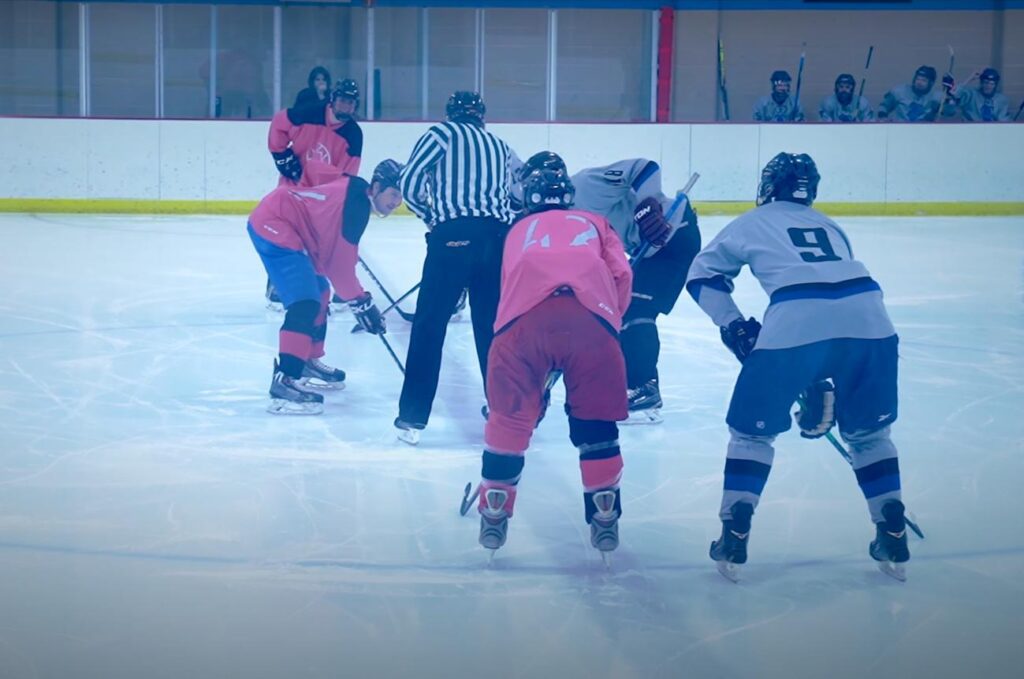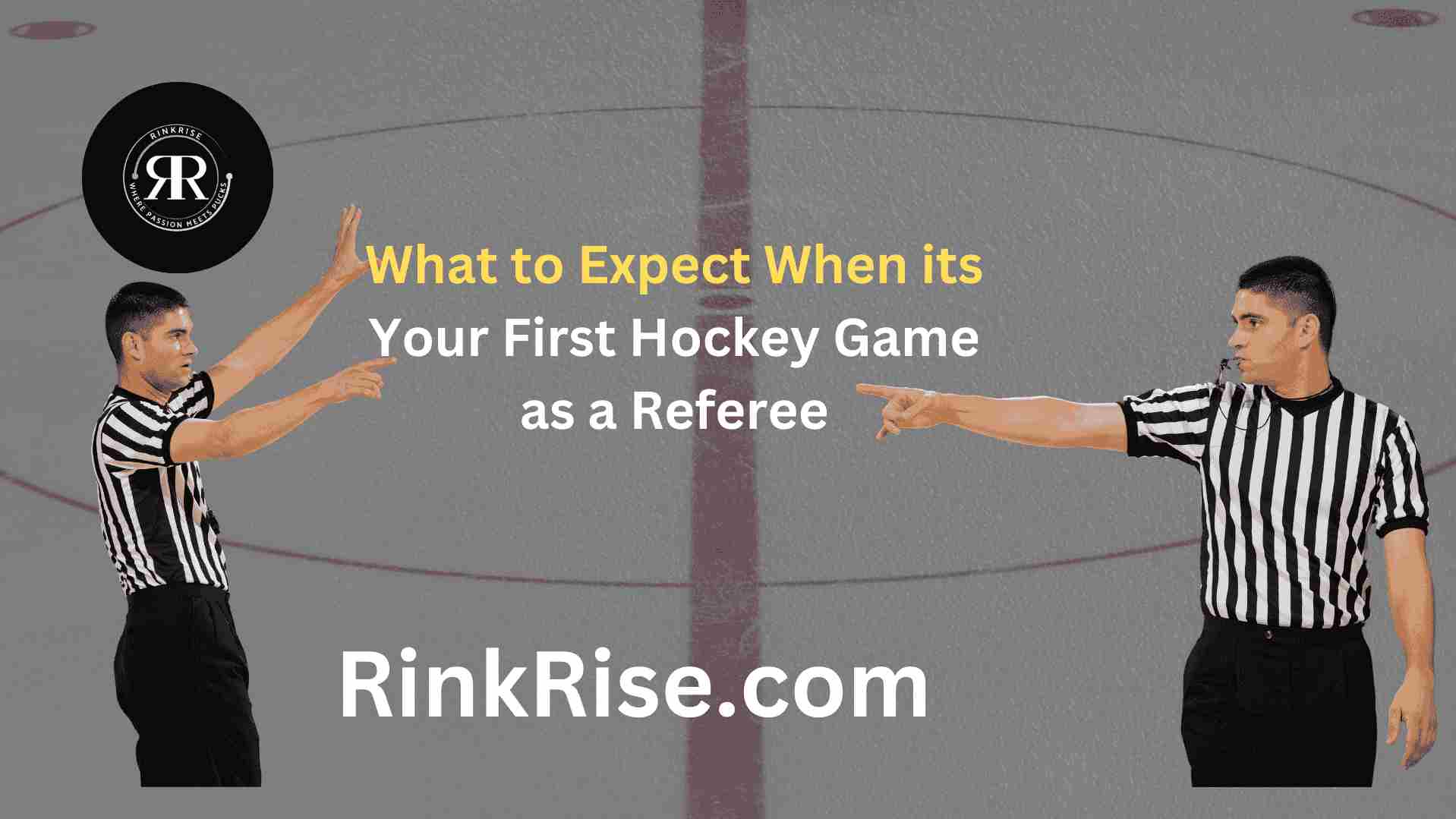Introduction to Hockey Refereeing
Starting your journey as a hockey referee is an exciting step, especially if you have been involved in the sport as a player. The transition from player to referee offers a unique perspective on the game. Here’s what you can expect during your initial experience as a referee.
Pre-Game Preparation
Before you can oversee your first hockey game, significant preparation is necessary. This includes thoroughly studying the USA Hockey rulebook, completing online training modules, passing your test, and attending an in-person seminar. These steps are designed to equip you with the knowledge needed to confidently manage a game. However, the real challenge begins once the puck drops.
Experiencing Your First Game
Your first hockey game as a referee will be a rapid transition where theoretical knowledge meets practical application. It’s common to have an experienced referee shadow you during your early games. This mentorship is invaluable as it helps reinforce your training and assists you in applying the rules in real-time situations.
Initial Focus as a Hockey Referee
When you start your role as a hockey referee, it’s normal to feel overwhelmed with all the rules and responsibilities. Early on, it’s crucial to concentrate on your positioning on the ice. This foundational skill helps you manage the game more effectively and sets the stage for mastering other aspects like penalty calls.
Gradual Progression in Skills
In the beginning, you might rely on an experienced partner to help manage the game while you improve your own skills. Positioning is key, and as you gain experience, you will learn to make calls more confidently. Remember, it’s perfectly fine to focus on getting your positioning right before worrying about every rule during the game.
Physical Demands of Refereeing
Refereeing is physically demanding. Your first game might leave your legs tired and your feet sore, as you’ll be on the ice for over an hour. However, you’ll soon learn that you don’t need to sprint constantly. As you become more comfortable and better at anticipating the play, you can conserve energy and move more efficiently.

Enhancing Your Hockey Skills
Officiating games will improve your skating skills and deepen your understanding of hockey. Each game helps you become more adept on the ice and enriches your knowledge of the game’s rules. After a few games, many referees find they are not only better at enforcing rules but also at playing hockey themselves.
Contributing to the Sport
There’s a significant need for more hockey referees. If you enjoy skating and are looking for a way to earn extra money, becoming a referee is a rewarding option. This role not only enhances your personal skills but also contributes positively to the hockey community.
Guidance for New Hockey Referees
I still vividly recall my initial venture onto the ice for my first league game. Although it was my debut in hockey officiating, I wasn’t new to the role of an official. Carrying years of coaching, officiating, and a deep passion for the game, I felt calm, eager, and ready as I skated to center ice. However, no matter the level we are officiating, it’s crucial to ensure fairness and player safety on the ice. Despite facing often unreasonable expectations from coaches, players, and parents, adopting certain best practices can greatly aid in our preparation.
Five Essential Tips
Be a Role Model
First impressions are vital. Dress professionally according to the dress code when entering the arena. It’s important to greet Coaches and Trainers warmly on the ice. Experienced referees often have a standard greeting that extends beyond simple handshakes, showing openness to dialogue with coaches in a respectful manner. Ensuring unity with your officiating partner from the start sets a professional tone.
Master the Rules
Understanding the rules thoroughly comes from both study and experience. It’s common to be surprised by how swiftly decisions need to be made, and mistakes do happen. However, familiarity with the rules leads to quicker, more accurate decision-making.

Demonstrate Strong Work Ethic
Efficient positioning and energetic movement are critical. Showing commitment through swift skating to strategic positions like home base or the net demonstrates your dedication and helps in making accurate calls. Confidence and comfort on the ice develop with experience, but the importance of vigorous movement cannot be overstated.
Effective Communication
Clear communication is fundamental. Positive interactions during calm moments can foster respect and cooperation during tense situations. Establishing your game management style through clear, respectful communication, positive body language, and decisive officiating signals helps manage the game effectively.
Emphasize Teamwork
Collaboration with your team on the ice provides numerous opportunities to gain different perspectives. Supporting your fellow officials and staying informed about behind-the-scenes actions helps maintain focus on the game. Regular consultations with your linesmen can enhance your awareness and decision-making.
Remember, all officials start somewhere and it’s normal to feel anxious. Always be open to asking questions and seeking advice from more experienced colleagues. Here’s to a fantastic season in stripes!
Read Also: Why do hockey referees wave off icing?
Conclusion
Beginning a career as a hockey referee combines physical challenges with the chance to enhance your knowledge and love for the sport. Embrace this path by concentrating on effective communication, teamwork, and a thorough understanding of the rules. These elements are crucial for maintaining fairness and safety throughout each game. By focusing on these core areas, you can make significant contributions to the sport and enjoy a rewarding experience on the ice.
FAQ’s: Your First Hockey Game as a Referee
How can one excel as a hockey referee?
To excel as a hockey referee, it’s essential to demonstrate fairness and neutrality during games. This involves making decisions based solely on a thorough understanding of the hockey rules and observing each play attentively. The goal is to ensure that all calls are based on objective observations rather than personal biases towards any team.
What are the primary responsibilities of a hockey referee?
A hockey referee’s key duties include enforcing the rules throughout the game, managing the clock, and halting or ending the match if necessary due to disruptions. Additionally, they penalize players for intentional fouls against opponents and consult with assistant referees to make informed decisions during various game situations.
What are the roles of referees during a hockey game?
In hockey, referees are responsible for conducting center-ice face-offs at the start of each period and following each goal, regardless of whether the game uses two, three, or four officials. Additionally, referees position themselves to face the timekeeper at the beginning of each period to ensure proper coordination.
What is the annual salary range for NHL referees?
NHL referees typically earn between $165,000 and $400,000 annually, with per-game earnings ranging from $1,500 to $3,000. In contrast, baseball umpires have a salary range of $150,000 to $450,000.
What steps are required to become a referee?
To become a referee, first, earn a high school diploma or its equivalent. Then, select the sport you wish to officiate. Next, acquire specialized training and complete any necessary state registration. Gain experience to advance in your officiating career, and finally, achieve certification in your chosen sport.
Do hockey referees need to wear protective gear?
Yes, hockey referees should wear shin guards to stay protected during games. It’s advisable to use lightweight pads that offer both protection and flexibility. New referees can start with their player shin guards until they acquire specific referee gear.



